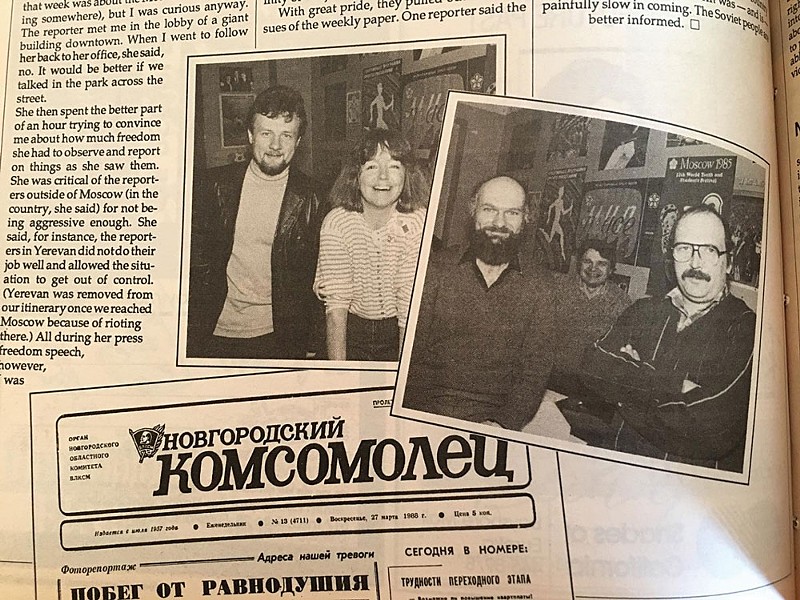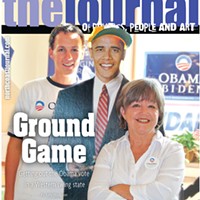"You weren't really a fan of Lyndon Johnson, were you?" a friend asked me suspiciously after the Jan. 19 column I wrote on my least favorite, post World War II presidents.
When Johnson took over a traumatized country after John F. Kennedy was assassinated, and when he ran against Barry Goldwater the next year, in 1964, yes. But after the Gulf of Tonkin Resolution in 1964 based on what we later found out was fake news from our own government? No. Johnson was a hawk trying to "contain" communism and he needed an excuse. He used the trumped-up resolution to dramatically escalate American participation in the regional conflict between North and South Vietnam. He created a quagmire for the U.S. By the time the war was over in 1973, long after his watch, 58,000 Americans were dead and so were many, many more Vietnamese. Every night on television, for years, we numbly watched military planes landing in the U.S. and unloading body bags.
We lived in Oregon in the late 1960s. I greatly admired U.S. Sen. Wayne Morse, one of only two senators who voted against the resolution because he likely knew it was based on phony news. These were the '60s. We protested. (Oregon State, not so much, but University of Oregon in Eugene was a different story.) The anti-war movement kept growing and growing, eventually giving birth to many more alternative weekly newspapers in big cities across the country. These papers told the truth about the war in contrast to the daily newspapers that often repeated the government's "alternative facts." Same thing happened with George W. Bush and Iraq, more recently. Alt papers resisted his 18-month drumbeat march to war while most of the traditional dailies, still traumatized by the 9/11 attacks and not wanting to appear unpatriotic, did not.
Now, in his first full week in office, our new president and his surrogates discharged a daily barrage of "alternative facts." He capped off the week declaring his intent to give immigration preference to Christians and to ban people from seven Muslim-majority countries from entering the U.S., including refugees from Syria. Those are facts, and so are these: None of the 9/11 hijackers came from those seven countries. All attacks on U.S. soil after 9/11 came from U.S. citizens or long-term legal residents. None were refugees or even recent immigrants. And I'm pretty sure his preference for Christians is unconstitutional.
Inspired by the work reporters did to expose Richard Nixon and the Watergate scandal, I returned to college and graduated in 1978 from Humboldt State with a degree in journalism. One of my classmates was John Diaz, now the editorial page editor for the San Francisco Chronicle. I often read his columns. He is smart, thoughtful, steady and clear-eyed. He wrote about the word "lie" on Sunday. He says to call someone a liar requires that you know a person's intent and we don't always do. He also said it is a conversation stopper often used by Trump himself to bully and silence an opponent. So John's plan is to continue using more precise words like falsehoods, baseless allegations, unsubstantiated claims, propaganda, unprovable assertions, etc. Or maybe we could use a word more mental-age-appropriate for Trump: fib.
I was recently thinking about another president, thanks to CNN's special on "The Eighties" airing last week: Ronald Reagan, and particularly his relationship with Russian President Mikhail Gorbachev. In 1988 I was between journalism jobs (after the Arcata Union and before the North Coast Journal was launched in 1990). I am the granddaughter of immigrants, part of a persecuted Christian sect from Russia who landed in Los Angeles via Mexico in 1905. I traveled with my mother, whose first language was Russian, on a trip in 1988 to what was then the Soviet Union. It was a thrilling time for the Russian people under Gorbachev's glasnost, a term, according to Wikipedia, associated with "reforms of the judicial system, ensuring that the press and the public could attend court hearings and that the sentence was also read out in public." It really meant government transparency. Heady stuff. My mother and I were free to wander around talking to whomever we wanted in cafeterias and at bus stops. I freely took pictures and notes. I visited two newspapers, a spunky weekly in Novgorod and another in Moscow. The Moscow experience was predictable. The assigned "reporter" met me at the door but did not invite me in. She suggested we take a walk to Pushkin Square across the street and was not very forthcoming. Defensive even. I figured she was either petrified to meet with an American journalist or, more likely, she was instructed to guide me to a specific bench in that park because it was wired. Or she was.
My Novogrod experience was quite different. Those young journalists had a fire in the belly for the work they were doing. They loved Gorbachev, joking about before and after he came into office. Now, one reporter said, we can write honestly about nursing home deficiencies and young people on drugs. Two years before, those problems didn't exist in the entire Soviet Union! Of course, I could tour their offices. It was on the weekend and we did not have permission. So one reporter told me he'd carry my camera, but I should keep my head down, walk quickly past the guard and up the back stairs. I wonder how those reporters are doing today, how hard it must be to have known freedom to do their jobs only to have it taken away.
It's going to be a long four-year slog here in the U.S. I don't envy the mainstream media. They are going to be busy every single day. And so are attorneys and the courts of this country. But I'm confident we'll fare better than my Russian friends. Lester Holt of NBC News visited the Bay Area recently and promised "to be relentless" in covering this new administration. We're counting on it.


Comments
Showing 1-1 of 1